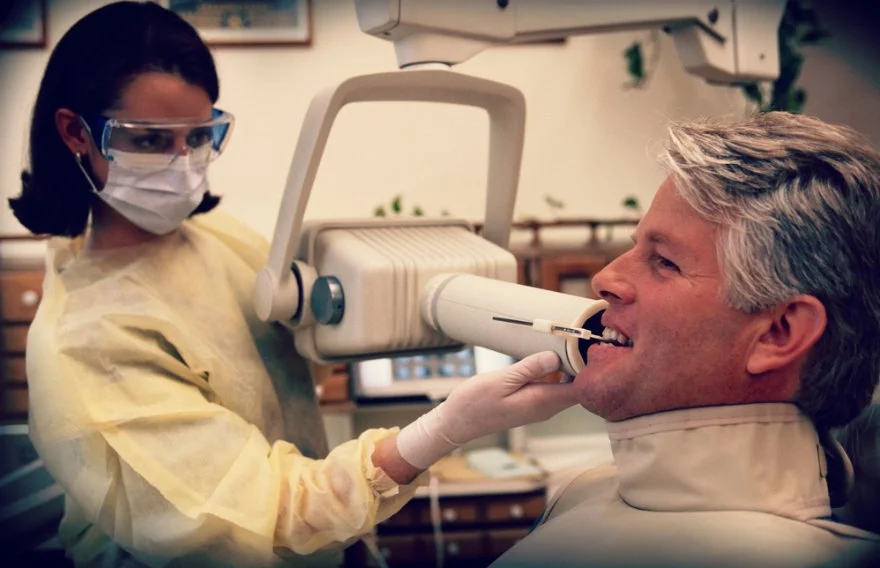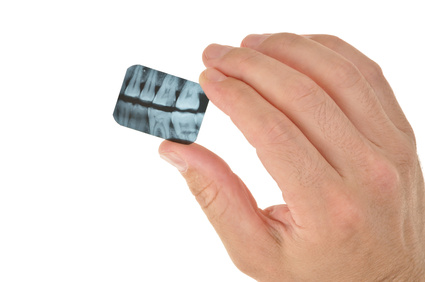Dental X-Rays: Everything You Need to Know
Source: myfuture.com
You know how your dentist gives you a little thing to bite on before they tell you to hold still and take an x-ray? Or does your dentist have a more high-tech, panoramic dental x-ray machine? Today I’ll explain why we take dental x-rays and the different types there are. I’ll also discuss whether dental x-rays are safe and if you should get dental x-rays during pregnancy.
Dental Radiology 101
Dental x-rays are also called radiographs. (Dental radiology is the study of them.) Your dentist may take dental x-rays if you’re a new patient, haven’t been seen in a while, or are in for a follow-up visit after dental treatment. Your age, health, and individual needs and risk factors all affect how often dental x-rays are taken.
Despite using mirrors and shining a bright light into your mouth, I can’t see everything. Dental x-rays are valuable because they can detect damage to teeth and the bone supporting teeth that I can’t see during a routine visual examination. About half of cavities are diagnosed from x-rays.
Dental x-rays can show the condition of your teeth, their roots, jaw placement, and your facial bones. They can help me see if you have periodontal (gum) disease and how bad it is. Dental x-rays also reveal cavities, abscesses, and abnormal growths like cysts and tumors.
So why else do I take dental x-rays? Because finding and treating dental problems early can save you time, money, and pain. If you have a hidden tumor, dental radiology may even help you save your life. In that light, holding still for a few seconds is a pretty small price to pay!
Types of Dental X-Rays
The most common type of dental x-rays are bitewing x-rays. (Think of it as biting down on little flexible wings.) Bitewing x-rays typically determine if there’s decay between teeth – one of the most common areas where decay-causing bacteria live.
Another common dental x-ray type is the periapical x-ray, which gives the dentist an image of the entire tooth, including the roots. A periapical x-ray helps me evaluate the root structure of a particular tooth. I can also see bone level, cysts, and abscesses.
A panoramic radiograph is a type of x-ray that lets me see the entire structure of your mouth. It shows me all of your upper and lower teeth and part of your jaw in a single image. Dentists typically use a panoramic radiograph to see how teeth are developing in kids and teens, especially wisdom teeth.
Check out this video for a one-minute explanation of dental x-rays:
Are Dental X-Rays Dangerous?
Dental x-rays are safe. Any kind of x-ray requires radiation, but with dental x-rays, the amount of radiation is very small. And today’s modern digital x-rays require much less radiation for exposure than traditional film x-rays do.
Here’s what CNN says about dental x-rays: “Four bitewing x-rays, which is what many people get in a routine exam, give about .005 millisieverts of radiation, according to the American College of Radiology. That's about the same amount of radiation you get in a normal day from the sun and other sources.”
Most of our daily activities expose us to some level of radiation. Your microwave and other home appliances, sunlight, and minerals in dirt also give off radiation. Riding in an airplane exposes you to radiation. I wonder more about the radiation from my cell phone than I worry about dental x-rays!
Plus, we take precautions to minimize your radiation exposure. You know how the dental assistant drapes a heavy apron over your chest before the x-ray? There’s lead inside, which blocks the radiation from your body, and the little collar part of it helps to protect your thyroid, all of which minimizes your exposure.
Dental X-Rays and Pregnancy
Pregnant women (and those trying to conceive) often ask if dental x-rays are safe during pregnancy. The short answer is yes, and it is safe during all trimesters of pregnancy. Make sure you tell your dentist if you’re pregnant. We can always double up on leaded aprons to be extra cautious.
Don’t stop going to the dentist when you’re pregnant! Fluctuating hormone levels can wreak havoc on your mouth. “During pregnancy, you are more likely to have problems with your teeth or gums,” writes the Journal of Midwifery and Women’s Health. “If you have an infection in your teeth or gums, the chance of your baby being premature (born early) or having low birth weight may be slightly higher than if your teeth and gums are healthy.”
Have you had dental x-rays in the past 2-3 years? If not, make an appointment today!
At Batchelor Dentistry, we provide every patient with high-quality care and technology. Read more about our advanced dentistry services.


